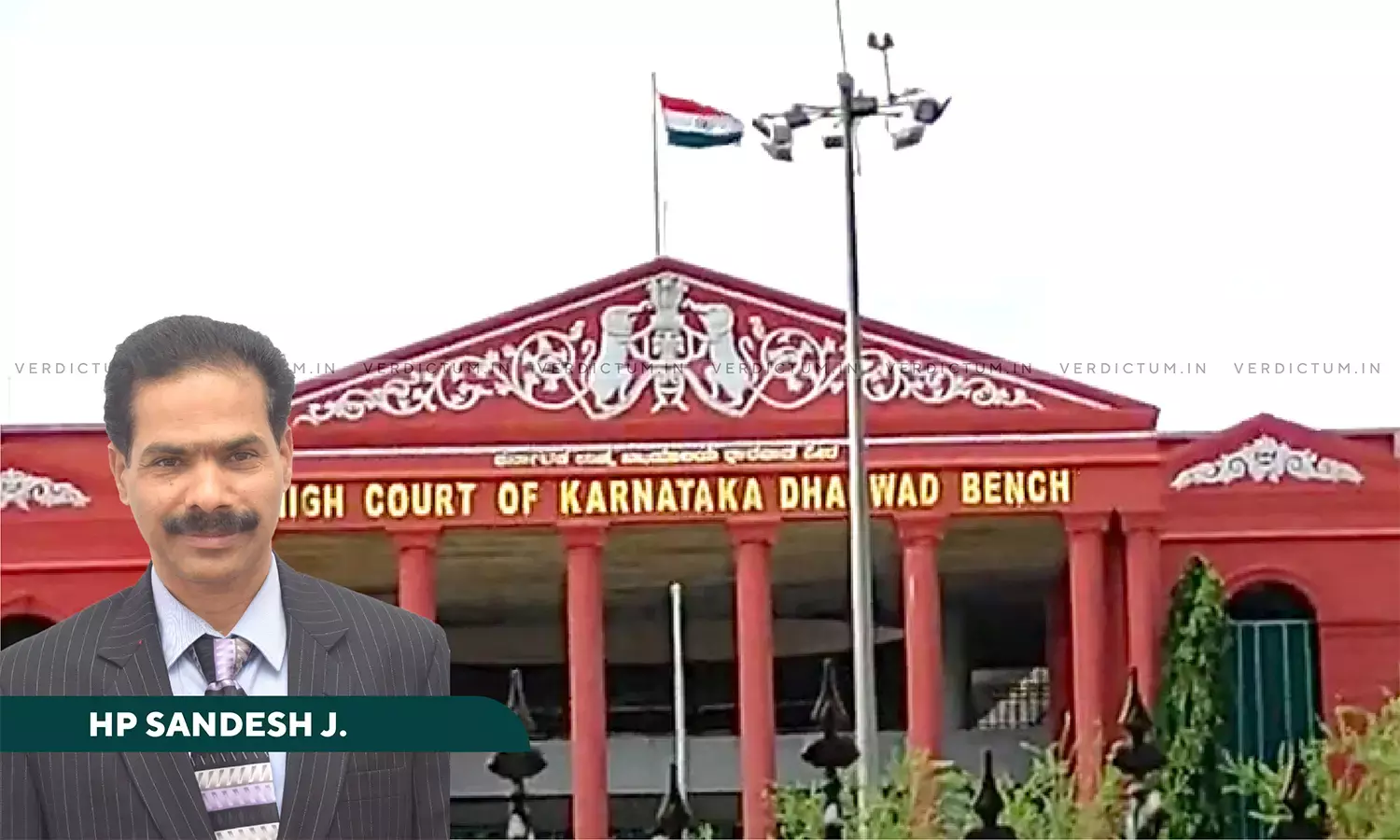Consideration Mentioned In Instrument Is To Be Considered For Valuing Suit U/S 38 Of Karnataka Court Fees & Suits Valuation Act: Karnataka HC
The Karnataka High Court reiterated that the consideration mentioned in the instrument is to be taken into consideration while valuing suit for the purpose of court fee under Section 38 of Karnataka Court Fees and Suits Valuation Act and not the market value of the property.
In that context, the Bench of Justice HP Sandesh observed that, "Both the Hon’ble Apex Court as well as Division Bench of this Court have held that as per Section 35(8) of the Act, when used a word ‘value of the subject matter of the instrument’ i.e. consideration mentioned in the instrument is to be taken into consideration while valuing suit for the purpose of court fee under Section 38 of the Act and not the market value of the property."
In this case, the petitioner sought a writ of certiorari from the Court to quash an order in a case involving a dispute over land described in the suit as land bearing Sy.No.23A/11A/1, measuring 14 gunta, located in Hiremaganur village, Ranebennur taluk.
The respondent, who was the plaintiff, originally owned the land and had gifted it to the fourth defendant in 1993 with the understanding that the land would be used to construct a marriage hall in memory of the plaintiff's wife, Smt. Shanthamma. The terms of the gift included that the marriage hall would bear her name and would be kept for public use. Additionally, the fourth defendant was not to sell or repurpose the land. However, the fourth defendant did not fulfill these conditions and instead transferred the land to the third defendant in 2005, who planned to use it as a school playground. The plaintiff, therefore, filed a suit to cancel both the original and subsequent gift deeds and regain possession of the land.
The Trial Court, after hearing the case, determined that it did not have the pecuniary jurisdiction to hear the matter and ordered the plaint to be returned to the plaintiff. The plaintiff appealed this decision, and the First Appellate Court found that the Trial Court had erred by combining the issues of limitation and jurisdiction into a single issue. The Appellate Court set aside the Trial Court's decision and directed the Trial Court to separate the issues and reconsider them.
The petitioner then filed a writ petition challenging the Appellate Court's decision, arguing that the Trial Court had correctly assessed the jurisdiction based on the market value of the property and that the Appellate Court had misinterpreted the law.
The High Court held that the First Appellate Court correctly interpreted Sections 7 and 38 of the Karnataka Court Fees and Suits Valuation Act, 1958, concluding that the valuation of property under Section 38(1) refers to the value mentioned in the document, not the actual market value. The Court noted that the First Appellate Court had thoroughly discussed this interpretation, taking into account authoritative judgments, and rightly determined that the suit should be valued under Section 38, not Section 7, as argued by the petitioner.
Furthermore, the Court dismissed the petitioner's argument that the suit should have been valued separately for possession, stating that when the relief sought is the cancellation of a document that conveyed rights under a gift deed, and the declaration of the document is found to violate the conditions of the gift deed, the relief of possession is considered ancillary. The Court endorsed the First Appellate Court's position that a separate court fee for possession was unnecessary, citing the discussion on Section 6 of the Act.
The Court also upheld the First Appellate Court's observation that the Trial Court erred in combining the issues of limitation and pecuniary jurisdiction, which are distinct, and properly directed the Trial Court to consider these issues independently. Consequently, the Court dismissed the writ petition, affirming the decision of the First Appellate Court.
Cause Title: Sangameshgouda Mudigoudra vs Shri Basavanneppa & Ors. (Neutral Citation: 2024:KHC-D:11336)
Click here to read/download the Judgment




